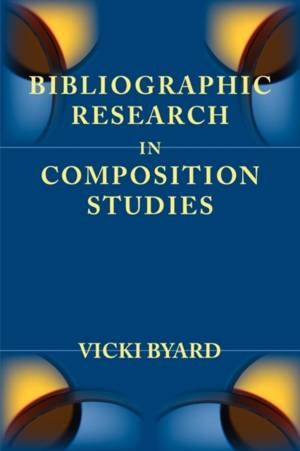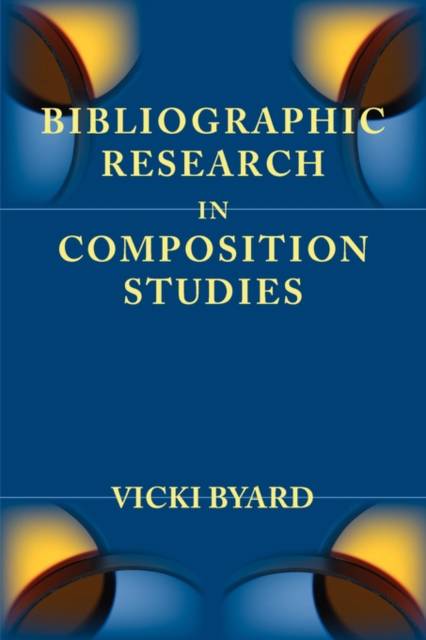
- Retrait gratuit dans votre magasin Club
- 7.000.000 titres dans notre catalogue
- Payer en toute sécurité
- Toujours un magasin près de chez vous
- Retrait gratuit dans votre magasin Club
- 7.000.0000 titres dans notre catalogue
- Payer en toute sécurité
- Toujours un magasin près de chez vous
Description
BIBLIOGRAPHIC RESEARCH IN COMPOSITION STUDIES is a student-friendly guide to how knowledge is constructed and disseminated in composition studies, as well as a thorough handbook on how to conduct bibliographic research in the discipline. Student readers are taught Stephen North's taxonomy of scholarship, empirical research, and practice so that they can better contextualize the sources they read, and they learn the unique ways that some genres of publication function in composition studies. The book also leads students through the entire process of completing a bibliographic assignment. Students learn to search for and select pertinent sources effectively, how to use major databases and other bibliographic resources to conduct a comprehensive search for disciplinary knowledge, and how to draft and revise an annotated bibliography and a review of literature. Four appendices offer additional support in understanding libraries, journals, and databases, all as they pertain to research in composition studies. The book helps students make sense of a broadly defined discipline and prepares them to become active and independent learners, as well as original contributors to the unending conversation in composition studies. BIBLIOGRAPHIC RESEARCH IN COMPOSITION STUDIES is the first volume in Parlor Press's new Lenses on Composition Studies series, which features texts written specifically for upper-level undergraduate and entry-level graduate courses in composition studies. VICKI BYARD is Professor of English at Northeastern Illinois University, located in Chicago, where she currently serves as the Coordinator of the First-Year Writing Program. She teaches first-year and upper-level writing courses, as well as graduate-level theory and research courses in an MA composition program. Previously, she authored the Instructor's Resource Manual for the first and second editions of THE ALLYN & BACON GUIDE TO WRITING, and she is a frequent presenter at national conferences in composition studies. She received her MA and PhD in rhetoric and composition from Purdue University. LENSES ON COMPOSITION STUDIES offers authors the unique opportunity to write for advanced undergraduate and beginning graduate students who are new to the discipline of Composition Studies. While the series aims to maintain the rigor and depth of contemporary composition scholarship, it seeks to offer this particular group of students an introduction to key disciplinary issues in accessible prose that does not assume prior advanced knowledge of scholars and theoretical debates. The series provides instructors of advanced undergraduate or beginning graduate students texts that are both appropriate and inviting for this fresh but professionally directed audience.
Spécifications
Parties prenantes
- Auteur(s) :
- Editeur:
Contenu
- Nombre de pages :
- 172
- Langue:
- Anglais
- Collection :
Caractéristiques
- EAN:
- 9781602351318
- Date de parution :
- 28-09-09
- Format:
- Livre broché
- Format numérique:
- Trade paperback (VS)
- Dimensions :
- 152 mm x 229 mm
- Poids :
- 258 g

Les avis
Nous publions uniquement les avis qui respectent les conditions requises. Consultez nos conditions pour les avis.






